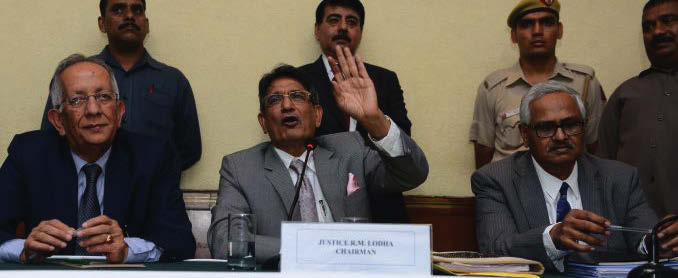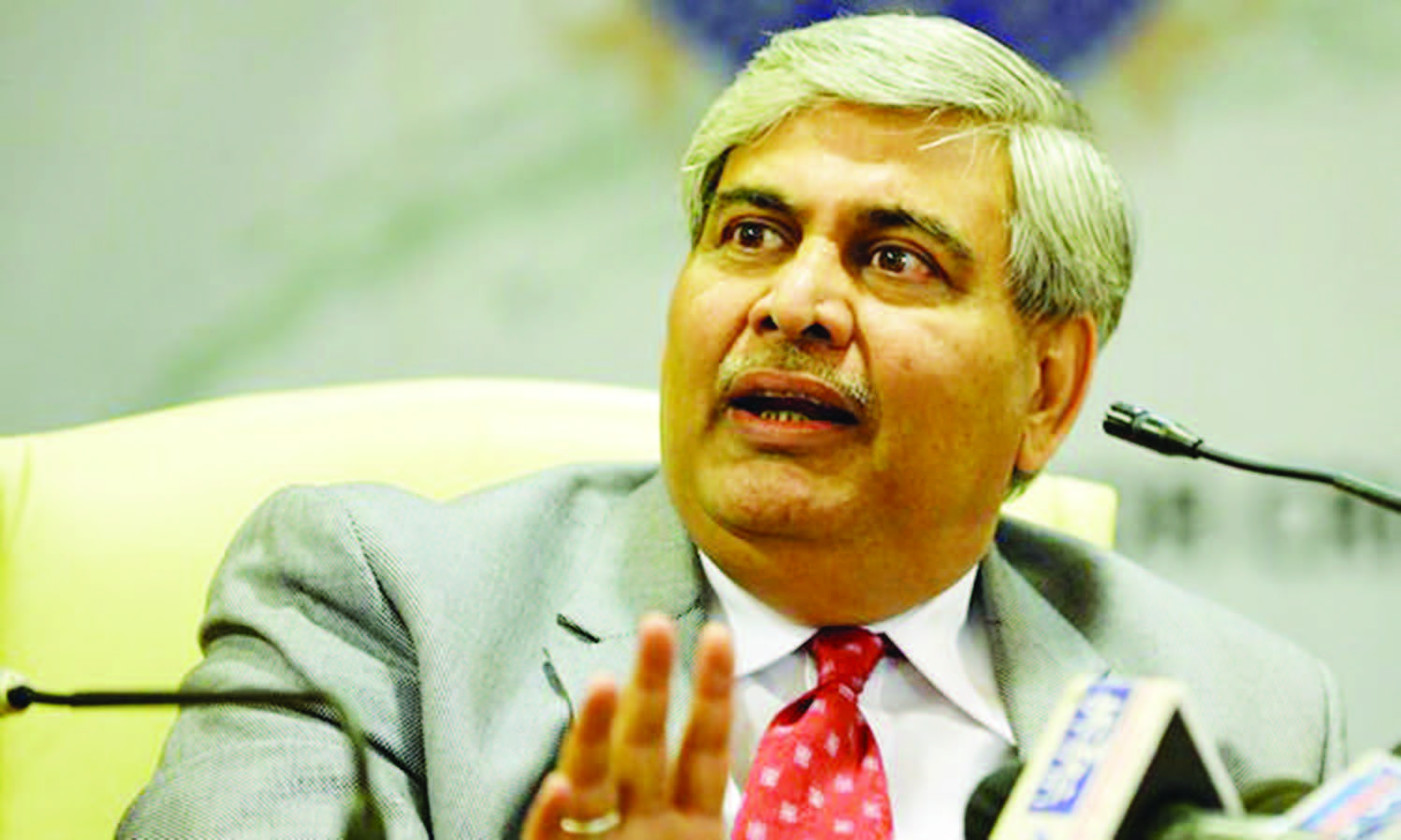
Pakistan has two angry messiahs, the Maulana and the Cricketer. Both are men of fine oratory – the former being more gifted. They promise to kick wicked leaders out of government, reward the righteous, and deliver a new Pakistan. Before a coup-plagued nation that has spent many decades under military rule, they preach to adulating under-30 crowds about the corruption of the present rulers. But neither dares to touch Pakistan’s real issues. Both are careful to castigate only the corruption of civilians; there is nary a word about the others.
Inspired by his fiery rhetoric, for four days the Maulana’s youthful Lashkar-e-Qadri had occupied D-Chowk, Islamabad’s version of Tahrir Square. The cheering, chanting, flag-waving crowd was joyous at the verdict ordering the arrest of Prime Minister Raja Pervaiz Ashraf. The precise timing owed to another one of Pakistan’s putative saviors – the honorable Chief Justice of Pakistan.
In this age of discontent, assorted demagogues have mastered the art of mobilizing the credulous masses. Corruption, say the Maulana and the Cricketer, is Pakistan’s central problem. Utopia will come if honest and pious men – perhaps themselves – are in power. But is crookedness and dishonesty the real issue? Countries which are perfectly viable and livable may still have corrupt governments.
Prime Minister Silvio Berlusconi has been convicted of everything from tax fraud to soliciting minors for sex, and yet Italy keeps getting richer and better. No one dares call it a failed state. Mitt Romney – who Barack Obama only barely defeated – parked his assets in the Cayman Islands and paid only a little more tax than Pakistan’s unscrupulous parliamentarians. Corruption in the US is institutionalized to the point that Washington spent 10 trillion dollars of taxpayer money bailing out banks and corporations but no politician or CEO (with one exception) ended up behind the bars.
Interestingly, according to the 2012 Corruption Perceptions Index (CPI), 70 per cent of the world’s people see their countries as more corrupt than good. So then, what are Pakistan’s real problems today? If the lives of Pakistanis are to be improved, what is it that really needs to be done? First, address the population problem. Demographers estimate the expected number of Pakistanis in 2030 at a staggering 258 million, which must be compared with 28 million in 1947 as well as the current population of 180 million. This growth is the second highest among major Muslim countries in the world.
Even if we miraculously acquire the most perfect of political systems, it may be impossible to provide most Pakistanis with employment, education, food, housing, electricity, water, and a clean environment. Short of renting another planet, there is no way that the constraints of fixed land and water can be overcome. This emergency situation demands that population planning must be reinstated and contraceptives be made freely available. Once upon a time, Pakistan had a population planning organization. But it has essentially folded up in the face of religious opposition. The Jamaat-e- Islami’s party manifesto, and those of other religious parties, specifically forbids family planning.
As for the Taliban: they suspect that polio vaccines are designed to reduce Muslim fertility and so have issued dire threats. Last month, the TTP brought the immunization program to a halt by murdering five women and a man who were administering the shots in Karachi. So, instead of getting claps and cheers, our messiahs might have to face bullets and bombs should they dare to rally people around this real issue. Second, the terrorism of religious militias must be confronted head-on.
Their daily slaughter of Pakistani soldiers and citizens, and recently the Hazara Shias, elicits only the barest whimper of protest in the media or the public. In shameful surrender, there is talk of negotiating with terrorist groups. The lesson of Swat – where kowtowing to Sufi Mohammed’s ever-escalating demands led to increased ferocity from the other side – is forgotten. The army and the state stand in muddled confusion. They know they should actually negotiate only from a position of strength and not in their present condition of weakness. Unfortunately they cannot summon the courage to do this.
The Maulana is silent on this critical matter, but the Cricketer prefers to attack those who might target Pakistan’s enemies. He would rather shoot at the drones than the terrorists. Third, the promise of the messiahs that they shall bring prosperity to everyone by somehow equalizing the distribution of wealth is fake and dishonest, and unimplementable. One would certainly welcome extending the tax net, and doing so would be a huge achievement. But to actually bring prosperity, wealth must be created rather than simply expropriated from somewhere. The only party that seems to give this any consideration is the PML-N.
But industrial progress and a post-agricultural economy require cultural change, and so Pakistani society will need to transition from being a progress-unfriendly culture to one that welcomes and promotes progress. From the time of the 19th century German sociologist Max Weber, social scientists have observed that culture and progress go handin- hand. Progress-friendly cultures demand planning, punctuality, deferred gratification, belief in rationality, and the rule of law. Without acquiring these features, wealth generation is slow and uncertain. Fortunately, as it turned out, the ‘million-man march’ turned out to be a damp squib.
Its victory would have resulted in indefinite postponement of the forthcoming national elections and Pakistan would have returned to a dreary tradition where no government has successfully completed its term in office. During the occupation, messiah-junior was caught in a dilemma. Eclipsed by his senior and unable to join in the demand for postponement, he now seeks to clamber his way back into the public eye. Pakistan’s restless young are out on the streets demanding change, but they must not become pawns of fake messiahs.
The fist-shaking, rostrum-pounding orations of Maulana Qadri and Cricketer Khan are empty thunder; they offer nothing real. Of course, the D-Chowk youth rightly protested Pakistan’s pseudo-democracy and its venal and incompetent civilian leaders. But the military’s attempt to landscape national politics – which is probably what rocketed the Maulana into his present prominence – could be disastrous and would go the way of the army’s past failed interventions. At a time when Pakistan is seriously threatened by internal terror, the military would do well to perform its real duty which is that of protecting Pakistan’s people.




Be the first to comment